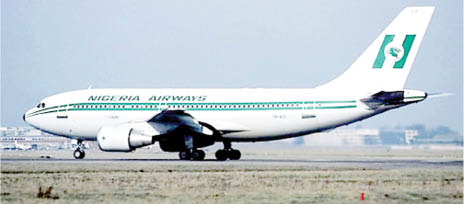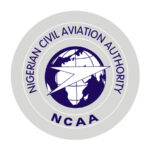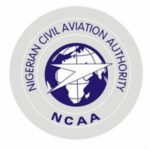Twenty years after the liquidation of the first ever Nigeria’s national carrier, Nigeria Airways, the nation is still reeling from the aftermath while several attempts to bring back the carrier have hit the rocks.
When Nigeria celebrated its 64th Independence Anniversary on October 1st, Nigeria’s only national carrier, Nigeria Airways, would have been 66-year-old, proudly flying the country’s green-white-green flag and competing with other national airlines.
However, the airline was liquidated in 2004 by the Olusegun Obasanjo’s administration, following huge indebtedness of the airline and near collapse as virtually all its aircraft were grounded.
Though the administration continues to justify the decision to liquidate the airline, citing mismanagement and financial impropriety, stakeholders have continued to raise eyebrows over the propriety of the decision.
- #EndBadGovernance: Amnesty, SERAP, lawyers oppose detention of teenage protesters
- Despite risks, matchmaking business thrives in Kano
They said the liquidation of the airline has dragged back the industry and created a gap that has not been filled in the last 20 years.
First Nigerian pilot, Capt. Bob Hayes, who worked with Nigeria Airways, recently expressed sadness over the liquidation of the former national carrier.
He said, “We were very sad when we lost Nigeria Airways. But now that the country is proposing to set up a new airline, I think this is one of the best things that will happen to us.
“Most countries in Africa now have national carriers and I think it is about time Nigeria, the biggest country in black Africa, should of course takes its lead in the comity of nations in this industry. Nigeria deserves that and I am looking forward to that.”
Former Aviation Minister and one-time Managing Director of Nigeria Airways, Air Vice-Marshal Anthony Okpere rtd, also stated that Nigeria Airways shouldn’t have been liquidated.
“I recall one evening when they decided to wind up Nigerian Airways, I sat with the late Admiral Aikhomu and I saw people bulldozing one house in the GRA here that was sold off with the captain’s things inside the house. Meanwhile, that Captain was on a flight on national assignment, so to say.
“As far as I was concerned and I still stand by my words, Nigeria Airways shouldn’t have died. They had a probe and I am sure you are aware of the probe; they know all the people that brought Nigeria Airways to its knees. I worked there quite alright and I was equally probed but I beat my chest. Thank God in the midst of aviators and people in the industry, I carried my head up high.”
Failed attempts at bringing back national carrier
Weekend Trust reports that there have been several attempts at bringing back the national carrier after the demise of Nigeria Airways, the last being the ill-fated Nigeria Air spearheaded by the immediate past Minister of Aviation, Senator Hadi Sirika.
Prior to the conception of Nigeria Air which has now been suspended by the federal government and also quashed by the court, there were Virgin Nigeria; Nigeria Eagle, Air Nigeria, Nigeria One, among others which did not see the light of the day.
Our correspondent reports that the birth of Virgin Nigeria was one of the highly celebrated attempts at bringing back the national carrier through the partnership with the popular English business magnate, Richard Branson, who founded the Virgin Atlantic Airways. However, the operation did not last more than four years before the Memorandum of Understanding (MoU) collapsed like a pack of cards.
Following the exit of the Virgin Nigeria Group, there was the Nigerian Eagle Airline which inherited the vestiges of Virgin Nigeria but was short-lived by the avalanche of the challenges of the previous attempt.
From the Nigerian Eagle, Air Nigeria collected the flag through popular businessman and politician, Jimoh Ibrahim, in another controversial circumstance. It became so enmeshed in crisis, leading to the suspension of its Air Operator’s Certificate (AOC) by the Nigeria Civil Aviation Authority (NCAA).
Another attempt was the Nigeria One spearheaded by former Minister Stella Oduah. Like the previous attempts, Oduah exuded so much confidence and hope of reviving the national carrier but despite the investment sunk into it and several trips to market the new baby with assurance of proposed investment by the Bombardier Aircraft Manufacturing Company, the new carrier never saw the light of the day.
The very last known attempt was Nigeria Air, the baby of Sirika. It all started from July 2018 when Sirika unveiled the name, logo, livery and the insignia of the airline at the Farnborough Air Show in UK.
“I am very pleased to tell you that we are finally on track to launching a new national flag carrier for our country: Nigeria Air. We are all fully committed to fulfilling the campaign promise made by our president, Muhammadu Buhari, in 2015. We are aiming to launch Nigeria Air by the end of this year.”
Sirika, who was then the Minister of State for Aviation, did not actualise the vision until the end of the first term of President Muhammadu Buhari’s administration. He returned as a senior Minister to the aviation industry and he continued to drive the process until the twilight of the administration when an aircraft belonging to Ethiopian Airlines was unveiled.
Weekend Trust reports that Ethiopian Airlines was earlier unveiled as the equity partner of the airline with 49 per cent controlling share.
The Airline Operators of Nigeria (AON) had challenged the selection of Ethiopian Airline in court and got an injunction to stop the process. The Federal High Court in Lagos later agreed with the AON and stopped the share sale to Ethiopian Airlines even when the current minister had suspended the airline.
At the moment, the process has been suspended and the new Minister, Festus Keyamo, who said the entire process was not in the interest of Nigeria, stated that it is now left for the president to decide on the new national carrier.
Keyamo, while justifying the suspension, said “It was not a deal that was good for Nigeria in the long run. The whole composition and the totality of that deal was merely Ethiopian Airline flying Nigeria Air. There were better deals on the table. Why did we settle for this?”
What went wrong?
Stakeholders, industry players and analysts are aghast over the failure of all the attempts despite millions of dollars and billions of naira sunk into it.
Sirika in response to a report that N85bn was expended on the Nigeria Air project stated that only N3bn was spent on the project.
The former minister said: “Between the years 2016-2023, all the money budgeted for Nigeria Air was about N5bn but not all of it was released. Perhaps about N3bn was released.
“Part of the N3bn has so far been spent on the acquisition of offices, payments of consultancy fees, workers’ salaries and processing of Air Operators ‘Certificate (AOC).”
From 2003 till date, virtually all the ministers of Aviation that have served made an attempt to bring back the national carrier with billions of naira spent on the various projects.
Experts say the billions of public funds that have gone into the various attempts at establishing national carriers are enough to set up a profitable airline.
A former employee of the Nigeria Airways, Comrade Abba Ocheme, said those previous attempts were not directed at anything. According to him, the attempts were driven by “self-interest” as against national interest.
Asked why the previous attempts failed to translate into setting up a new airline, he said, “The first thing is those attempts were not aimed at anything. There wasn’t any clear goal that those attempts were directed at achieving. They are a pack of self-interest covered with the national cloak.”
‘National carrier not a mystery’
Ocheme, who is also the General Secretary of the National Union of Air Transport Employees (NUATE), stated that setting up a national carrier should not be a mystery.
“If you want to set up a national carrier, there are national carriers everywhere. This type of mystery that they are importing into setting up a national carrier is what is causing the problem. There’s a national carrier in Ethiopia. Everybody knows how it is. There’s also a national carrier in the UAE; there are national carriers everywhere.
“They tried to do this type of mystery with Kenya Airways. It didn’t work. If you want to set up a national carrier, simply set up a national carrier. Rwanda has a national carrier, Uganda has too. So why has Nigeria’s own national carrier become so complex, so complicated with shareholding and arithmetic, with mathematics and algebra?
“If you want to set up a national carrier, go ahead and set up a national carrier. Name it and let it run. If we are afraid that Nigeria as a government does not have the discipline to allow a company it has set up run without interference, then simply contract the administration of the company. Go and hire. If you check all the successful national carriers, the majority of them don’t have indigenes as their chief executives.
“So, if you say this is how the company will run, it will run, it will be successful. There is no reason why it cannot be successful. But if we don’t know what to say to the national carrier, let us not deceive people; going about saying you want to arrange some kind of complex mystery and that you are going to be looking for someone to solve it. That’s my impression. The reason they have not succeeded is because they have never been straight forward. So, we don’t need to create a new model for a national carrier.”
‘Airways’ liquidation, Nigeria’s biggest error’
He described the liquidation of Nigeria Airways as Nigeria’s biggest mistake which the country has not recovered from.
He said, “Everybody in aviation knows that the biggest error made in Nigeria’s aviation sector was the liquidation of Nigeria Airways. It’s a well-known fact. That was our biggest error, and it is still haunting us till today. Why our aviation is directionless is because it’s not being driven by any type of unit that you can refer to. So, there was no reason to liquidate Nigerian Airways”.
‘Nigeria Airways could have been revived’
“We were part of the dying members of the airline. And at that point, the only thing that was needed to revive Nigeria Airways was not for the government to put any money. The loan and everything had been arranged by Afreximbank to inject into the airline, which were tied to acquisition of aircraft and technical expertise.
“All that was needed was a government guarantee not to pay it. It was deliberately withdrawn or withheld. And that is the reason Nigeria airways could not recover. Even at a point, the carrier just wanted the government to leave it. Even without a plane, the Nigeria Airways had a clear plan of how to operate as Nigeria Airways. It could successfully operate, cater for its staff without any government help but instead of allowing it to operate, all they did was to go and prevent Nigeria Airways from renewing its insurance for the few aircraft. They deliberately disallowed them from renewing the insurance so the airline died. It was killed and the whole aviation industry is suffering from it today. Anybody who is anybody in Nigeria aviation today got their initial training from Nigeria airways; and since its demise, nobody is training anybody anymore,” he said.
Aviation analyst and union leader, Comrade Olayinka Abioye, blamed the inability to float a new national carrier on “policy inconsistencies, policy somersault of the federal government and lack of transparency from the federal government.”
He said there was personal interest against national interest, lack of transparency, lack of openness, lack of business idea or business model.
“What kind of airline do you want? Is it an airline that is going to be fully owned by the federal government or a shareholding business where Nigerians will buy in? And, despite the too much politicking, we wanted the Nigerian government to float a national airline that will build and boost our image, and also serve as a national heritage that we can be proud of.
“People fly British Airways, American Airlines and things like that. Those airlines are shareholding companies. So, what is wrong with us holding a national carrier? Efforts were made in the past, but those efforts became fruitless with humongous amount of funds wasted. That money alone is enough to start an airline if it were done by an individual.
“The government is not straightforward. How do you want to form a national airline and you are being secretive about it? Those in government will just call their friends and set up a committee and then choose members to midwife such a process. There is no openness in this exercise. They say this today, the next moment they bring another policy that supersedes the earlier policy. So, until we put our acts together, we are not going anywhere,” he said.
Former Rector of the Nigerian College of Aviation Technology (NCAT), Capt. Samuel Caulcrick, stated that Nigeria Airways died because of the changing financing dynamics.
He said, “Nigeria Airways was 100 per cent federal government owned and the government was broke at the time. Governments had been broke since 1986 or 85 and so, everything about the government was struggling – the refineries, NEPA, railways, Nigeria National Shipping Line.”
He stated that since Nigeria Airways had access to capital from the government, it was struggling at that time and could no longer compete with its contemporaries all over the world.
Aviation analyst and commentator, Group Capt. John Ojikutu rtd, however, believes the idea of a national carrier should be jettisoned for flag carriers.
He said, “You have said it all: beginning from 1993, we have made several attempts to have a national carrier to replace the Nigeria Airways. I remember saying at a public hearing of the NASS Committee on Aviation in 1993 headed by ATM Ahmed, former FAAN MD, when the plan for the change started, that unless you know what is killing the Nigeria Airways, our efforts will be fruitless.
“It is 31 years after that. Before now and until 2019, I had supported a national carrier but not any more after 2019 and after listening to the former and last minister. I had advised; set up two flag carriers, one regional and continental and the other intercontinental. These airlines can be drawn from the existing airlines. I suggested that rather than giving AMCON the management of Arik and Aero, get foreign technical partners and credible Nigerian investors to buy the debts and assets (50/60%) of the airlines, encourage Nigerians to buy 25/30% shares through the capital markets and the federal government and states overnments should buy 10% of the shares.
“But there is a competition between those who still believe that a national carrier should be a government carrier while flag carriers are private airlines and I say no. Flag carriers are national flag carriers like ambassadors while the so-called designated carriers of today are just like a travelling passenger carrying a Nigerian passport. Both would get different receptions at the foreign countries of destinations. We need flag carriers and not national carrier.”

 Join Daily Trust WhatsApp Community For Quick Access To News and Happenings Around You.
Join Daily Trust WhatsApp Community For Quick Access To News and Happenings Around You.
